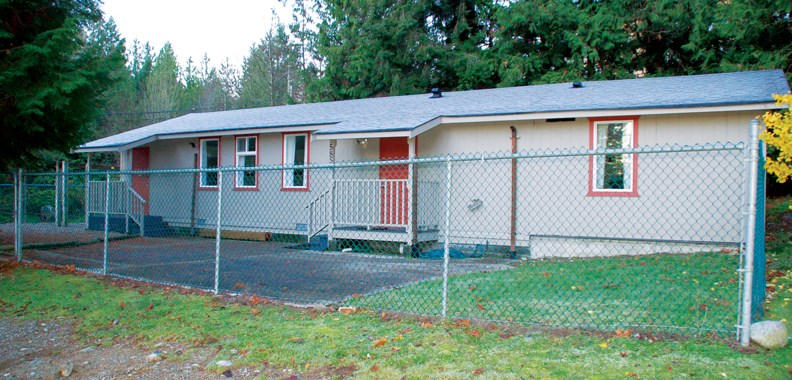Funding for the Coast’s only cold weather shelter will end on March 31, forcing the shelter to close its doors – but more funding is being sought to help the homeless find housing alternatives until the shelter can reopen in November.
The Sunshine Coast Cold Weather Shelter is funded by BC Housing, and members of a shelter steering committee (an offshoot of the Sunshine Coast Homelessness Advisory Committee) have asked BC Housing for additional funding over the spring, summer and fall months for an outreach worker to serve the homeless.
“So starting on April 1 that person would work full time and ideally support the people who have been staying in the shelter to find accommodation and get connected with local services,” said Cayce Laviolette of the shelter steering committee.
“We’re just waiting to hear back from BC Housing [about funding] any day now.”
Laviolette said the outreach worker would be able to offer services that weren’t available at the shelter, such as driving people to appointments and acting as an intermediary between would-be tenants and landlords.
The mobile worker could also serve clients anywhere on the Coast, as getting to Sechelt is a barrier to some.
Laviolette wouldn’t say how much the outreach worker would cost because the information is “confidential given that we’re still in negotiations with BC Housing,” but he said the worker would help keep shelter users from falling through the cracks while the shelter is closed.
It’s expected the cold weather shelter will reopen in November, but it will depend on BC Housing again granting funding for the service.
Throughout the 2015-16 shelter season (which started on Nov. 21 and ends March 31), Laviolette said there were consistently more shelter users than there were beds available. For that reason the committee is also searching for a larger space to house the cold weather shelter come this November.
Currently the shelter is housed in an annex building at St. Hilda’s Anglican Church in Sechelt, but the space has only enough room for 10 beds. Laviolette said there were often in the range of 15 homeless people seeking a place to sleep between December and March.
“We probably need something twice the size of the current annex. So I think it’s safe to say maybe 2,000 square feet with a full kitchen, office space, two washrooms and easily accessible because a lot of people who have stayed in the shelter are facing mobility issues,” Laviolette said, noting the space should also be on a bus route.
He’s hopeful someone in the community can offer the larger space for free, which is what the church has been doing for several years now.
“If we have to pay to lease a space, then we have to raise more money,” Laviolette said.
If anyone in the community has an acceptable space they’d like to offer for the shelter during the upcoming season (November to March), Laviolette asks them to email [email protected]
If the shelter location is moved for the 2016-17 season, a new lead operator will also have to be secured.
“St. Hilda’s has been operating as the employer of our staff, so if the shelter moves off St. Hilda’s property we will need another organization to step in and handle staffing and health and safety issues and basically be the agency that funnels money from BC Housing,” Laviolette said.
He noted that the 2015-16 season, although started on a sad note, has been “really successful.”
Originally the shelter was granted only enough funding from BC Housing to be open in cases of extreme weather, but the agency changed its policy after hearing of homeless man Harry Paul’s death. Paul died on a bench in Gibsons overnight on Nov. 13 when temperatures didn’t dip below six degrees Celsius and therefore didn’t trigger the extreme weather shelter’s opening.
Following Paul’s death and an outpouring of support from the community, BC Housing kicked in enough funding to keep the shelter open every night from Nov. 21 to March 31.
Laviolette said it cost over $100,000 to offer the cold weather shelter during those four months.
“It’s been a really successful season. We’ve hired some amazing staff people and we’ve had record numbers of people staying there, which is unfortunate for the community that so many people are homeless but it’s great that we’ve had this shelter and that we’re making connections with people who need help,” Laviolette said.
He thanked the community for its support of the shelter that came in donations of money, food, supplies and volunteer time during the 2015-16 shelter season.
“We had incredible support from people volunteering their time and making meals and just coming by and helping out around the shelter. It was really quite remarkable and we’re very fortunate to live in a community like this,” Laviolette said.



